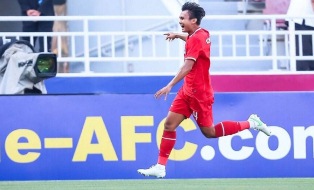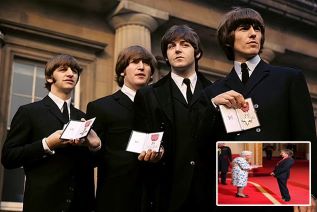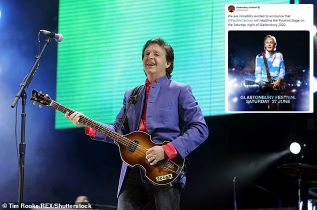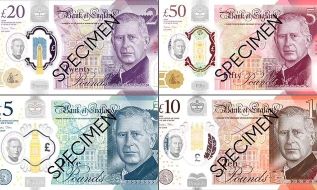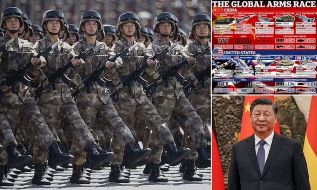MU Tembus Rekor Belanja Pemain di Liga Premier Inggris
United`s Frantic Buys Push Premier League Deals to a Record Level
Editor : Ismail Gani
Translator : Novita Cahyadi
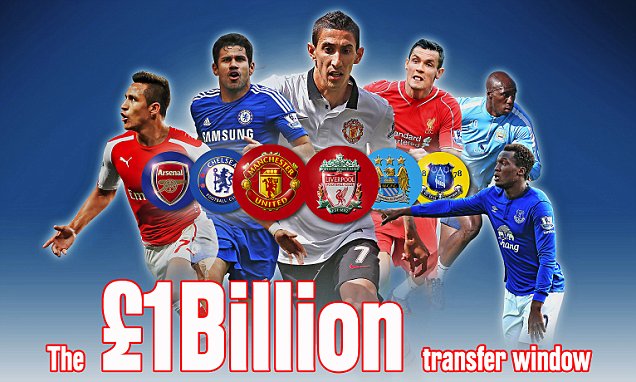
KEPANIKAN yang melanda Manchester United setelah prestasinya melorot pasca ditinggal Sir Alex Ferguson menjadi faktor utama klub tajir ini menggelontorkan dana hingga ke level tertinggi di transfer musim panas.
Kombinasi dari belanja 20 klub di Liga Premier Inggris totalnya 755,9 juta poundsterling, bahkan sebelum tercapai kesepakatan membeli Daley Blind dari Ajax, tunduk pada syarat medis dan masalah pribadi. Dari jumlah itu, 570 juta poundsterling terbang ke luar negeri, dan Spanyol meraih hampir separuhnya, 238 juta poundsterling, seperti dilansir MailOnline.
Kedatangan Blind akan menggenapkan belanja pemain MU hingga 150 juta poundsterling dan memicu pertanyaan menggoda karena hanya beberapa jam sebelum batas waktu transfer ditutup. Apakah nilainya akan menembus total transfer 1 miliar poundsterling?
Apakah mungkin hal yang sama terjadi pada klub-klub di divisi satu bisa merogoh kocek rata-rata 50 juta poundsterling dan hal itu terjadi
dalam satu periode transfer? Dan itu termasuk setidaknya komitmen setara upah dengan pemain baru.
Akhirnya, rekor belanja hingga 630 juta poundsterling di transfer window ditembus. Berdasarkan aktivitas tahun lalu, adalah mungkin bahwa total pada Minggu pagi sebelum batas akhir transfer
ditembus.
Total transfer musim panas lalu hanya 507 juta poundsterling dan meningkat ke 630 juta poundsterling pada penutupan bisnis. Setidaknya, persentase kenaikan untuk menembus 1 miliar poundsterling dapat tercapai.
Itulah sebabnya MU berani menembus rekor 59,7 juta poundsterling pada Angel di Maria, kenapa Chelsea membeli Diego Costa dan Arsenal merekrut Alexis Sanchez, nilainya masing-masing 32 juta poundsterling - dan kenapa ketiga klub ini tetap berani belanja meski menjelang transfer window ditutup.
Southampton merogoh kocek 12 juta poundsterling untuk Shane Long, dan West Ham membayar harga yang sama untuk Enner Valencia. Everton memecahkan rekor mereka sendiri untuk membeli Romelu Lukaku senilai 28 juta poundsterling dari Chelsea sementara Leicester menghabiskan 8 juta poundsterling kepada Leonardo Ulloa.
Manajer West Bromwich Alan Irvine mengatakan: 'Belanja pemain sangat tinggi. Kami mulai dengan anggaran yang tampak baik, dan sangat cepat tapi ternyata masih tergolong kecil.'
Sesungguhnya, terlalu besar nilai belanja pemain,
karena tingginya tuntutan untuk merekrut pemain hebat dan komisi untuk agen harus dipertimbangkan."
Dan Jones, partner di Sports Business Group di Deloitte, peningkatan belanja pemain karena banyak faktor.
Belanja tersebut termasuk dari 'pencarian bakat di Piala Dunia' menyuguhkan fakta bahwa tiap pemain Liga Premier Inggris meraih pendapatan rata-rata 25 juta poundsterling dari iklan televisi 2013-2014.
Pada 2010, perdagangan musim panas untuk klub Liga Premier secara substansial turun ke 365 juta poundsterling dari 2009 senilai 450 juta poundsterling.
Klub-klub raksasa mencapai lompatan besar; perolehan Liverpool dari TV naik 43 juta poundsterling ke 87,5 juta poundsterling, Manchester City naik 38,5 juta poundsterling menjadi 96,6 juta poundsterling, Chelsea naik 39,1 juta poundsterling menjadi 94,1 juta poundsterling sementara klub seperti Arsenal, Tottenham, Newcastle, Southampton dan Stoke rata-rata naik 30 juta poundsterling.
MANCHESTER United's frantic rebuilding programme to patch up the inadequate squad left by Sir Alex Ferguson has been a major factor in propelling Premier League spending to record levels for a summer window.
The combined outlay for the 20 clubs stood at £755.9million, even before United's £14m deal to buy Daley Blind from Ajax, subject to medical and personal terms, was announced. Of that, £570m has gone overseas, with Spain alone receiving £238.7m.
The arrival of Blind will take United's summer spree to almost £150m and sets up a tantalising question with just a few dozen hours of this window remaining. Will this be a £1billion window?
Is it possible that these clubs from just one division can spend an average of £50m apiece in one transfer period? And that does include at least the equivalent commitment in wages to the new players.
Already last summer's Premier League record spend of £630m for one transfer window has been smashed. Based on last year's activity, it is possible that the total on the Sunday morning before the window closes can leap by about a quarter when the window shuts.
Last summer £507m turned to £630m at the close of business. The same percentage rise will see the £1bn figure pushed close.
That is why United splashed a British record fee of £59.7m on Angel Di Maria, why Chelsea bought Diego Costa and Arsenal bought Alexis Sanchez for £32m each - and why all three clubs will remain in the market before the window closes.
Southampton have splashed out £12m for Shane Long, and West Ham have paid the same for Enner Valencia. Everton broke their own record to buy £28m Romelu Lukaku from Chelsea while Leicester spent £8m on Leonardo Ulloa.
West Bromwich manager Alan Irvine said: 'Fees are extremely high. We started with a budget that looked good, and very quickly it looked a small budget.
Clearly, there have been huge fees paid for players, huge demands by those players and agents' fees have been considerable.'
Dan Jones, partner in the Sports Business Group at Deloitte, attributes the rise in spending to a number of factors.
They include 'the showcase for talent a World Cup provides' and the fact that each Premier League club received on average £25m more central TV cash in 2013-14 than they did the season before.
In 2010, summer trade to Premier League clubs was substantially down (£365m) on 2009 (£450m).
And in 2006 it was only very marginally up on 2005. Jones's calculations on TV cash also don't tell the full story: each club received on average an extra £28m in central Premier League funds in 2013-14, or £78m against £50m, with £26m of this extra being TV cash.
The big clubs saw bigger leaps; Liverpool's TV money went up by £43m to £97.5m, Manchester City's was up by £38.5m to £96.6m, Chelsea's was up £39.1m to £94.1m, and clubs like Arsenal, Tottenham, Newcastle, Southampton and Stoke saw rises of £30m.




